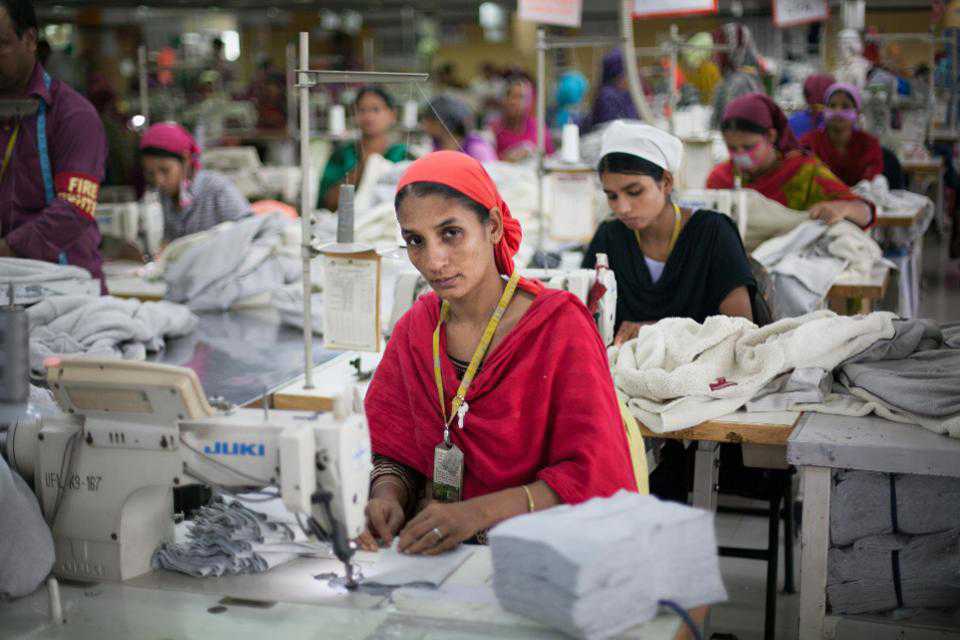Blue economy and marine spatial planning

Image collected
The other day in Brussels, participants of the European Parliament met to examine the current state of Bangladesh’s significant ready-built garment (RMG) industry, now the second-largest on the globe and a significant supplier to Europe. It's been almost seven years since the Rana Plaza factory complicated collapsed, killing more than 1,100 workers, mostly young females, and injuring 2,500 others. Rana Plaza made world-wide headlines and searing photos that still color various people’s perceptions of Bangladesh and the broader risks to workers in global supply chains. As the government and native industry in Bangladesh even now need to address significant factory safety and labor privileges concerns, they have made serious progress during the last seven years, improvement that was discussed the other day in Brussels. Building on this momentum necessitates support for a fresh oversight body, the Prepared Manufactured Garment Industry’s Sustainability Council (RSC). To succeed it will need substantive backing and funds from overseas governments and potential buyers to address the root factors behind systemic safety and different labor rights concerns, including poor safety records in subcontracting factories and restrictions on freedom of association.
This season, the apparel industry is forecast to create approximately $1.65 trillion globally. During the last four decades, powered by pressure to slice production costs and generate huge volume with short turnaround times, garment manufacturing provides migrated from america and Western Europe usually to Asia and Latin America. More recently, as Chinese labor costs contain increased, global clothing makes like H&M, Zara, Walmart, and GAP possess turned to countries like Bangladesh, where wages are lower and creation capacity ample. Since 2008, Bangladesh attire exports have more than tripled, and are nowadays valued at more than $34 billion. Garment sector exports now account for 82% of most exported goods from Bangladesh. This tremendous growth has helped to fuel the country’s financial development and slice the level of extreme poverty in two since 2000. In large part for this reason explosive growth, the Environment Bank tasks that Bangladesh will accomplish middle-income status by 2024.
Throughout this expansion, factory safety has remained a trouble. In the aftermath of the Rana Plaza tragedy, governments, global brands, and industry and labor representatives cooperated within an unprecedented way to boost factory conditions through two coordinated factory safety courses. The Bangladesh Accord burning and Construction Safety brought together a lot more than 200 mostly European brands and vendors, together with the global union federations IndustriALL and UNI Global. On a parallel monitor, the Alliance for Bangladesh Worker Safety included a lot more than 20 mostly American makes, though without union involvement. For a lot more than six years, these initiatives drove significant progress safely standards at more than 2,400 factories, offering inspections, remediation ideas and safety training. These efforts resulted in safer workplaces for more than 2 million workers.
Today, Bangladesh is at a crossroads. With the Accord and Alliance concluded, local manufacturers, foreign unions, global makes, and the Bangladesh government been employed by together to build the RSC, a fresh entity made to oversee factory safety. As it embarks on this objective, the RSC must continue steadily to scrutinize factories which were inspected beneath the Accord and the Alliance, creating a continuing process that may apply common industry benchmarks in a uniform approach.
The RSC also needs to devote greater focus on thousands of smaller subcontracting factories that fell beyond your earlier oversight initiatives. Within an industry with considerably varying seasonal production demands, periodic reliance on subcontracting factories is normally a reasonable contingency strategy. Not surprisingly reality, most global brands claim to prohibit “unauthorized subcontracting.” This reluctance to acknowledge the role subcontracting takes on is counter-productive and produces improving factory safety more challenging by encouraging surreptitious habit and discouraging transparency by suppliers. Instead, global makes should acknowledge that subcontracting is definitely common, and really should reward total transparency in supply chains.
To accomplish these important goals, the RSC necessities additional support. Increasing factory safety will demand substantial capital. Nonetheless it is at reach if Western governments, and the firms that were area of the Accord and Alliance, talk about the personal responsibility with parties in Bangladesh. As the RSC requires shape, this is an ideal second for Bangladesh to have the business lead on these issues and enlist the support of overseas partners.
More broadly, there is a need for new methods to address labor legal rights in Bangladesh and elsewhere. Buyers have to acknowledge how their very own business versions - which put a premium on most reasonably priced and most effective turnaround - generally exacerbate pressures on native factory owners and injury workers. These global makes must also move from the punitive policing model that currently spots blame on native suppliers whenever factory auditors spot a problem. Rather, we desire a more collaborative version, one that emphasizes increased communications and cooperation between clients and suppliers, and shares responsibility for the well-being of staff. Stakeholders must work together to re-balance the distribution of costs and responsibilities among local makers, global makes, and governments towards the creation of long lasting solutions.
For years, Bangladesh was regarded as a place where workers’ rights weren't protected, and professional tragedies were all too prevalent. Now, however, localized factory owners, unions, global makes, and the Bangladesh government own begun to create a collaborative model that may change the status quo. If these ideas are supported and efficiently implemented, Bangladesh may become a good example of a protective global source chain, providing a version that can be used by countries all over the world.
Source: https://www.forbes.com
Tags :
Previous Story
- Emirates fast-tracks plan to launch fourth daily flight...
- H&M expects to be atmosphere positive by 2040
- Huawei agent approaches Europe to oppose US weight
- Global Bangladesh Market 2019
- Global phone networks attacked by hackers
- Facebook wants to take on financial services industry...
- Travel as a Positive Force
- Singer Bangladesh's majority stakes change hands